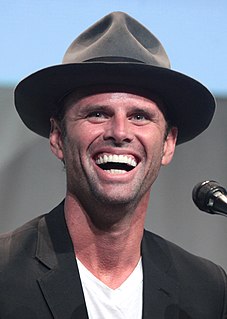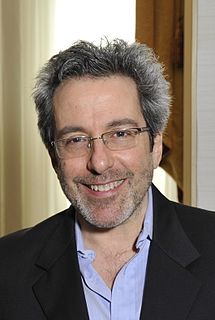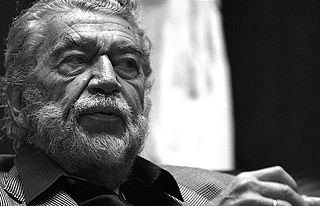A Quote by J. G. Ballard
I take for granted that for the imaginative writer, the exercise of the imagination is part of the basic process of coping with reality, just as actors need to act all the time to make up for some deficiency in their sense of themselves.
Related Quotes
We could decide simply to remain absorbed in the mysterious, unformed, free-play of reality. This would be the choice of the mystic who seeks to extinguish himself in God or Nirvana—analogous perhaps to the tendency among artists to obliterate themselves with alcohol or opiates. But if we value our participation in a shared reality in which it makes sense to make sense, then such self-abnegation would deny a central element of our humanity: the need to speak and act, to share our experience with others.
most Americans are in deep awe of things-as-they-are. Even with everything this obviously out of control, they still tell themselves that those in authority must know what they are doing, and must be describing our condition to us as it really is; they still take it for granted that somehow what is, what is done, must make sense, can't really be insane. These assumptions exercise a tyranny over their minds.
I have a lot of friends who are trying to clean up their act, or that are still making trouble for themselves, so I'm definitely well-versed on what goes on in the mind and the heart of a person who self-destructs as their coping mechanism, and also what they're like when you take their preferred substance away.
I have a lot of friends who are trying to clean up their act, or that are still making trouble for themselves, so I’m definitely well-versed on what goes on in the mind and the heart of a person who self-destructs as their coping mechanism, and also what they’re like when you take their preferred substance away.
I can't separate the process of writing from the visual process. I'm speaking only for myself here, but I'm a highly visual writer. In my imagination, when I'm thinking of a scene, I think of every last detail of it: The space, the color palette, the blocking of the actors, the placement of the camera.
I don't like realism. We already know the real facts about li[fe], most of the basic facts. I'm not interested in repeating what we already know. We know about sex, about violence, about murder, about war. All these things, by the time we're 18, we're up to here. From there on we need interpreters. We need poets. We need philosophers. We need theologians, who take the same basic facts and work with them and help us make do with those facts. Facts alone are not enough. It's interpretation.
But for me I think it's just about taking that time of reflection and contemplation. That's probably my process in every decision that I make: to make sure that I spend time just with myself, and really times of silence and mediation to go through that process; and music is a big part of that as well.
If you sense a deep human need, then you go back to all the basic science. If there is some missing, then you try to do more basic science and applied science until you get it. So you make the system to fulfill that need, rather than starting the other way around, where you have something and wonder what to do with it.
The receipt to make a speaker, and an applauded one too, is short and easy. Take common sense quantum sufficit; add a little application to the rules and orders of the House [of Commons], throw obvious thoughts in a new light, and make up the whole with a large quantity of purity, correctness and elegancy of style. Take it for granted that by far the greatest part of mankind neither analyze nor search to the bottom; they are incapable of penetrating deeper than the surface.






































